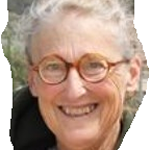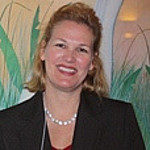Self-regulated learning (SRL) occurs when students assert control in their learning environment to reach intended goals (Pintrich, 2004). SRL skills, such as time management and goal setting, are an important source of achievement differences (Stadler, Aust, Becker, Niepel, & Greiff, 2016; Zimmerman & Schunk, 2011) and a predictor of course satisfaction (Inan, Yukselturk, Kurucay, & Flores, 2017). Self-regulation in online contexts is thought to be particularly important for student success (Broadbent & Poon, 2015; Shea & Bidjerano, 2012; Allen & Seaman, 2010).
This presentation will share the results of a self-regulated online learning survey administered in a self-paced, asynchronous, online, university-level course. The survey, adapted from Jansen et al. (2016), has been completed by 385 students. Data previously collected in the course shows high levels of student procrastination, as evidenced by activity peaks around major course deadlines. Steel (2007) describes procrastination as the “quintessential self-regulation failure” (p.1) and research consistently shows that overall, students’ self-regulatory skills are suboptimal (e.g., DiFrancesca, Nietfeld, & Cao, 2016; Peverly, Brobst, Graham, & Shaw, 2003; Pressley & Ghatala, 1990). Indeed, students enrolled in our course consistently lament their lack of time management skills and our survey results indicate that students report only moderate self-regulation skills.
Summaries of the data will be presented, and strategies for designing activities to enhance students’ self-regulatory behaviors will be discussed. Attendees will be asked to share their experiences supporting students’ self-regulation in a discussion following the presentation portion.

 Dr. Chareen Snelson is an Associate Professor with the Educational Technology program at Boise State University. She has worked in online education for more than seventeen years having designed and taught a wide variety of graduate-level educational technology courses including media design, leadership, and qualitative research methods. Her scholarly activity has focused on several areas including online learning, educational video production, educational applications of YouTube, and qualitative methods education.
Dr. Chareen Snelson is an Associate Professor with the Educational Technology program at Boise State University. She has worked in online education for more than seventeen years having designed and taught a wide variety of graduate-level educational technology courses including media design, leadership, and qualitative research methods. Her scholarly activity has focused on several areas including online learning, educational video production, educational applications of YouTube, and qualitative methods education. Dr. Ariana Eichelberger is an Associate Specialist and Instructional Designer in the College of Education. Eichelberger manages the Instructional Support Group of the College and coordinates the College’s faculty professional development program. As a faculty member of the Department of Learning Design and Technology, Eichelberger teaches graduate and undergraduate courses in instructional design and technology integration. She is also an instructional designer with the COE’s Distance Course Design and Consulting group (DCDC).
Dr. Ariana Eichelberger is an Associate Specialist and Instructional Designer in the College of Education. Eichelberger manages the Instructional Support Group of the College and coordinates the College’s faculty professional development program. As a faculty member of the Department of Learning Design and Technology, Eichelberger teaches graduate and undergraduate courses in instructional design and technology integration. She is also an instructional designer with the COE’s Distance Course Design and Consulting group (DCDC). Hong Ngo is an instructional designer currently living in Ho Chi Minh City, Vietnam.
Hong Ngo is an instructional designer currently living in Ho Chi Minh City, Vietnam. Dr. Cynthia Calongne is a professor in Doctoral Studies at Colorado Technical University and CCCOnline. She taught 52 university classes that met in a virtual world and 24 years on campus, hybrid, and online classes. A pioneer in 3D immersive education, she received the Thinkerer award at the 2017 Virtual Worlds Best Practices in Education for lifetime achievement, and her team won the $25,000 Grand Prize in the Federal Virtual World Challenge for their space simulation the Mars Expedition Strategy Challenge.
Dr. Cynthia Calongne is a professor in Doctoral Studies at Colorado Technical University and CCCOnline. She taught 52 university classes that met in a virtual world and 24 years on campus, hybrid, and online classes. A pioneer in 3D immersive education, she received the Thinkerer award at the 2017 Virtual Worlds Best Practices in Education for lifetime achievement, and her team won the $25,000 Grand Prize in the Federal Virtual World Challenge for their space simulation the Mars Expedition Strategy Challenge.


 Dr. Katherine Watson has been teaching French, English, ESL, linguistics, anthropology, and journalism for more than five decades, at first among farm laborers in picking fields, then in traditional classrooms, and ultimately online. She co-conceived, developed, and taught the first online adjunct to a telecourse offered by the Corporation for Public Broadcasting, Annenberg Learner’s French in Action. Then, she launched the first completely-online course in California’s Coast Community College District. Her publications have concentrated on language and thought, as they are transmitted and learned through time, space, and mode of delivery, as well as the transdisciplinary nature of learning. Dr. Watson is also a professional translator and interpreter and a swimmer in any sea.
Dr. Katherine Watson has been teaching French, English, ESL, linguistics, anthropology, and journalism for more than five decades, at first among farm laborers in picking fields, then in traditional classrooms, and ultimately online. She co-conceived, developed, and taught the first online adjunct to a telecourse offered by the Corporation for Public Broadcasting, Annenberg Learner’s French in Action. Then, she launched the first completely-online course in California’s Coast Community College District. Her publications have concentrated on language and thought, as they are transmitted and learned through time, space, and mode of delivery, as well as the transdisciplinary nature of learning. Dr. Watson is also a professional translator and interpreter and a swimmer in any sea. Danilo M. Baylen, an education technology professor who studies visual representation of Asian children’s literature. Born in the Philippines, he studies contemporary Filipino children’s books. In 2015, he co-edited Essentials of Teaching and Integrating Visual and Media Literacy published by Springer. Currently, he serves as editor of The Books of Selected Readings of the International Visual Literacy Association. As one of the editor of the current publication, he believes that a focus on LIS Education in the Asia-Pacific region adds to the body of knowledge on current practices in training and developing librarians. Educators and curriculum developers will find this edited book a valuable resource in designing instructional experiences to prepare librarians and other library professionals in the 21st century.
Danilo M. Baylen, an education technology professor who studies visual representation of Asian children’s literature. Born in the Philippines, he studies contemporary Filipino children’s books. In 2015, he co-edited Essentials of Teaching and Integrating Visual and Media Literacy published by Springer. Currently, he serves as editor of The Books of Selected Readings of the International Visual Literacy Association. As one of the editor of the current publication, he believes that a focus on LIS Education in the Asia-Pacific region adds to the body of knowledge on current practices in training and developing librarians. Educators and curriculum developers will find this edited book a valuable resource in designing instructional experiences to prepare librarians and other library professionals in the 21st century. Faye Furutomo is a project manager and designer, specializing in web development and instructional design projects. She has been with the UH Mānoa College of Education since 2008, serving as web designer and program manager for Distance Course Design & Consulting (DCDC), an award winning design and development team. She is also currently pursuing her PhD in Learning Design & Technology at UH Manoa. In addition, she earned her MBA from the Shidler College of Business, BA from Wheaton College in Illinois, BFA from the University of Hawai‘i at Mānoa, a Certificate of Online Learning and Teaching (COLT) from the Learning Design & Technology department. Faye is interested in the fields of project management, leadership, strategic planning, design and is passionate about improving higher education for Hawaii’s current and future generations.
Faye Furutomo is a project manager and designer, specializing in web development and instructional design projects. She has been with the UH Mānoa College of Education since 2008, serving as web designer and program manager for Distance Course Design & Consulting (DCDC), an award winning design and development team. She is also currently pursuing her PhD in Learning Design & Technology at UH Manoa. In addition, she earned her MBA from the Shidler College of Business, BA from Wheaton College in Illinois, BFA from the University of Hawai‘i at Mānoa, a Certificate of Online Learning and Teaching (COLT) from the Learning Design & Technology department. Faye is interested in the fields of project management, leadership, strategic planning, design and is passionate about improving higher education for Hawaii’s current and future generations. Dan Hoffman is an educator and researcher in the field of digital learning. His research focuses on the design of interactive experiences and their impact on learning and engagement. This interdisciplinary work takes place at the intersection of cognitive science, education and computer science. Seeing great potential in emerging human-computer interaction techniques, Dan studies interactivity and its ability to act as a conceptual and procedural scaffold in digital environments. In 2013, Dan earned his doctorate in Instructional Technology & Media from Teachers College, Columbia University. Before joining the Department of Learning Design & Technology at the University of Hawaii at Mānoa, he worked as a Senior Education Analyst at Kamehameha Schools. His background includes classroom teaching, the New York City Teaching Fellows program, and designing software for Intel and the Games for Learning Institute. He was born in Vermont and enjoys building computers, watching movies, and listening to podcasts.
Dan Hoffman is an educator and researcher in the field of digital learning. His research focuses on the design of interactive experiences and their impact on learning and engagement. This interdisciplinary work takes place at the intersection of cognitive science, education and computer science. Seeing great potential in emerging human-computer interaction techniques, Dan studies interactivity and its ability to act as a conceptual and procedural scaffold in digital environments. In 2013, Dan earned his doctorate in Instructional Technology & Media from Teachers College, Columbia University. Before joining the Department of Learning Design & Technology at the University of Hawaii at Mānoa, he worked as a Senior Education Analyst at Kamehameha Schools. His background includes classroom teaching, the New York City Teaching Fellows program, and designing software for Intel and the Games for Learning Institute. He was born in Vermont and enjoys building computers, watching movies, and listening to podcasts. Sandra Annette Rogers (aka Teacherrogers) has taught in a variety of K-16 educational settings from a rural hut in Honduras as a Peace Corps Volunteer to the University of California-Los Angeles Lab School as a Demonstration Teacher to elearning worldwide. She has taught bilingual elementary education, developmental reading, Spanish, and English for speakers of other languages (ESOL). She holds a K-12 bilingual (Spanish/English) teaching certificate from the California Commission on Teaching. She is a Quality Matters certified peer reviewer for online courses. She is also a Google Certified Educator. She is a content developer, instructional designer, researcher, and trainer. She has a doctorate in instructional design and a master’s in teaching ESOL. Her research interests include gaming, second language acquisition, and distance education. She currently serves as an instructional designer for UCLA’s Online Teaching and Learning Initiative. She will present on her recent publication, Curation of your online persona through self-care and responsible citizenship: Participatory digital citizenship for secondary education (2020).
Sandra Annette Rogers (aka Teacherrogers) has taught in a variety of K-16 educational settings from a rural hut in Honduras as a Peace Corps Volunteer to the University of California-Los Angeles Lab School as a Demonstration Teacher to elearning worldwide. She has taught bilingual elementary education, developmental reading, Spanish, and English for speakers of other languages (ESOL). She holds a K-12 bilingual (Spanish/English) teaching certificate from the California Commission on Teaching. She is a Quality Matters certified peer reviewer for online courses. She is also a Google Certified Educator. She is a content developer, instructional designer, researcher, and trainer. She has a doctorate in instructional design and a master’s in teaching ESOL. Her research interests include gaming, second language acquisition, and distance education. She currently serves as an instructional designer for UCLA’s Online Teaching and Learning Initiative. She will present on her recent publication, Curation of your online persona through self-care and responsible citizenship: Participatory digital citizenship for secondary education (2020). Dr. Tracy George is an Assistant Professor of Nursing at Francis Marion University. She has worked as a family nurse practitioner since 1999 in a variety of settings. Since 2012, she has taught undergraduate and graduate nursing courses. She has published and presented on the scholarship of teaching and learning, shared decision-making, and clinical nursing topics. Tracy has written several peer-reviewed articles and textbook chapters.
Dr. Tracy George is an Assistant Professor of Nursing at Francis Marion University. She has worked as a family nurse practitioner since 1999 in a variety of settings. Since 2012, she has taught undergraduate and graduate nursing courses. She has published and presented on the scholarship of teaching and learning, shared decision-making, and clinical nursing topics. Tracy has written several peer-reviewed articles and textbook chapters. Claire DeCristofaro, MD is a graduate of Hunter College of CUNY and Albert Einstein Medical School, both in New York City. Her family practice has been in both urban and rural sites in New York City, Tennessee and South Carolina. She is a full-time faculty member at Ashford University in the College of Arts & Sciences, aligned with the Behavioral Sciences deaprtment, and also teaching in the Gerontology and Health & Wellness programs. Other professional activities include serving as a federal grant reviewer for the Substance Abuse and Mental Health Services Administration (SAMHSA). As university faculty, she has taught in multiple graduate and undergraduate healthcare and behavioral health programs, with an additional interest in continuing education for APRNs, physicians, pharmacists and physician assistants on a wide variety of topics, including her AHEC online courses on controlled substance prescribing and clinical topics. Her scholarship has included publications and conference presentations on healthcare topics as well as the scholarship of teaching and learning.
Claire DeCristofaro, MD is a graduate of Hunter College of CUNY and Albert Einstein Medical School, both in New York City. Her family practice has been in both urban and rural sites in New York City, Tennessee and South Carolina. She is a full-time faculty member at Ashford University in the College of Arts & Sciences, aligned with the Behavioral Sciences deaprtment, and also teaching in the Gerontology and Health & Wellness programs. Other professional activities include serving as a federal grant reviewer for the Substance Abuse and Mental Health Services Administration (SAMHSA). As university faculty, she has taught in multiple graduate and undergraduate healthcare and behavioral health programs, with an additional interest in continuing education for APRNs, physicians, pharmacists and physician assistants on a wide variety of topics, including her AHEC online courses on controlled substance prescribing and clinical topics. Her scholarship has included publications and conference presentations on healthcare topics as well as the scholarship of teaching and learning. Tracy Crawford, MAEd, is a full-time faculty member teaching entry point and foundational courses for the College of General Studies with University of Phoenix where she has been working as a staff member for the past 15 years. She earned a Master’s degree in Education – Curriculum & Instruction/Adult Education Distance Learning and completed a Post-Baccalaureate Teacher Education Program for her Elementary teaching certificate. Tracy has been involved in education not only as a teacher and administrator, but also as a volunteer with United Way as a volunteer Reading Buddy, Head Start, Art Masterpiece and she has served as a Faculty Supervisor for student teachers. Tracy is a Certified Advanced Facilitator, has served as a Faculty Trainer, and facilitated both faculty and student workshops at University of Phoenix. Tracy’s true passion is helping students learn and grow!
Tracy Crawford, MAEd, is a full-time faculty member teaching entry point and foundational courses for the College of General Studies with University of Phoenix where she has been working as a staff member for the past 15 years. She earned a Master’s degree in Education – Curriculum & Instruction/Adult Education Distance Learning and completed a Post-Baccalaureate Teacher Education Program for her Elementary teaching certificate. Tracy has been involved in education not only as a teacher and administrator, but also as a volunteer with United Way as a volunteer Reading Buddy, Head Start, Art Masterpiece and she has served as a Faculty Supervisor for student teachers. Tracy is a Certified Advanced Facilitator, has served as a Faculty Trainer, and facilitated both faculty and student workshops at University of Phoenix. Tracy’s true passion is helping students learn and grow! Jennifer Romano is a graduate of Auburn University, receiving her Bachelor of Arts and Master of Arts in Mass Communication. While attending graduate school at Auburn, Jennifer was an instructor of Public Speaking. Upon graduating she became an adjunct professor at The University of South Alabama in Mobile, Alabama, followed by a full time instructor at Faulkner State Community College (now Coastal Community College) in Gulf Shores, Alabama. She taught communication and public speaking courses at both colleges. Then in 2007 Jennifer became a full time faculty member at Huntingdon College in Montgomery, Alabama, followed by Herzing University in Birmingham, Alabama; she was an instructor of mass communication, public speaking and humanities course. In 2013 Jennifer became a full time faculty member at University of Phoenix, where she is currently working as a full time instructor of General Studies and Humanities courses. She has over 15 years of experience with online instruction and LOVES being an instructor at University of Phoenix!
Jennifer Romano is a graduate of Auburn University, receiving her Bachelor of Arts and Master of Arts in Mass Communication. While attending graduate school at Auburn, Jennifer was an instructor of Public Speaking. Upon graduating she became an adjunct professor at The University of South Alabama in Mobile, Alabama, followed by a full time instructor at Faulkner State Community College (now Coastal Community College) in Gulf Shores, Alabama. She taught communication and public speaking courses at both colleges. Then in 2007 Jennifer became a full time faculty member at Huntingdon College in Montgomery, Alabama, followed by Herzing University in Birmingham, Alabama; she was an instructor of mass communication, public speaking and humanities course. In 2013 Jennifer became a full time faculty member at University of Phoenix, where she is currently working as a full time instructor of General Studies and Humanities courses. She has over 15 years of experience with online instruction and LOVES being an instructor at University of Phoenix!